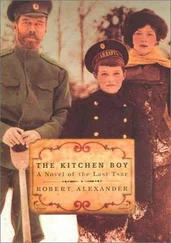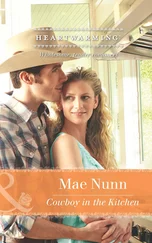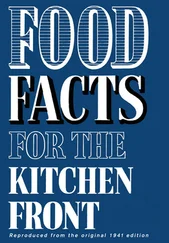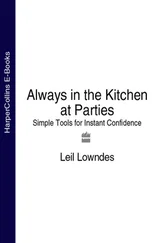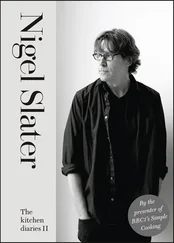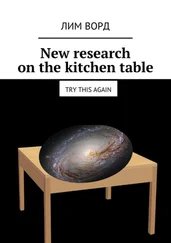Woman on men (i.e. her on me)
Men want a huge amount of praise for anything they do.
Whatever they do, men always create a vast amount of washing-up, but they never think of washing up as they go along.
Men are reluctant to follow recipes in the same way that they are reluctant to ask for directions when they are lost.
Men plunge into cooking without sorting out the ingredients and utensils they will need. Then they can’t find what they want. When things are found for them, they never put them away.
Men tend to over-season. They think that if a little is good then a lot will be even better. This particularly applies to salt and Tabasco.
Men give up easily – e.g., if they get a pain in their arm when whisking cakes.
Men disappear if they have to do some work, but they are quite handy for reaching things from high shelves.
Men are not keen on washing burnt pans. (This is simply not true. I’m always washing up pans that Mrs H has managed to fuse food on to.)
Men always want to pinch a bit of a dish that is in the process of being made. They are very keen on eating between meals.
Men fill the dishwasher any old how so it seems packed even though there aren’t many items in there.
Following these lacerating comments, it struck me that Mrs H might appreciate a few words of mild correction. Hence:
Man on women (i.e. me on her)
Women are very, very, very bossy.
Women tend to be excessively pedantic about recipes and timings.
Women are very keen on vegetables, even when old and fibrous. They have an inexplicable fondness for purple-sprouting broccoli that is too woody to eat.
Women take a lot of luring into eating oysters. When you finally manage to do this, they can often be sick and look at you reproachfully.
Women are very difficult to get out of kitchen shops. Their favourite reading tends to be the Lakeland catalogue. They spend money like water in such places. I’d never spend £18.99 on a jelly strainer set, though Mrs H says, ‘It’s worth its weight in gold.’
Women always remember to put on a pinny when cooking. Despite the consequent stains and splotches on my clothes, I would never wear such an emasculating garment.
Women are obsessed with cleanliness to the extent that it imperils our natural resistance to bugs and germs.
When clearing cupboards, women have a tendency to chuck out perfectly good foodstuffs that are only a year or two past their sell-by date.
Women are very willing to eat lobsters and most forms of fish, but show a marked reluctance to kill, gut or scale these creatures.
Women constantly complain that they have not received an equal share of food. They are particularly assiduous in checking the level in their wine glass. ‘It’s not fair!’
So why did we decide to test our relationship further by cooking the stuff in this book? Lots of food books will give you the recipes, but this one tells you what it was like to make these dishes, and where irritations and cock-ups occurred. We tried a variety of methods and recipes for items ranging from pasta to raspberry jam, pizza to pancakes. While avoiding outré ingredients (OK – we did a hamburger with wagyu beef) and complicated techniques, we aimed to produce versions that were, if not exactly perfect, pretty damn good and capable of being reproduced on the domestic range. From Lady Shaftesbury’s hot cheese dip (page 56) to Fergus Henderson’s seed cake (page 247), I’d recommend that anyone even vaguely interested in cooking should have a bash. There are, however, some exceptions. Heston Blumenthal’s Black Forest gateau is definitely not easy to do. Rocket science is a doddle by comparison. I would never have dreamed of making the damn thing if the features editor of a newspaper had not com missioned me to do so. For sanity’s sake, I earnestly entreat you not to try it. Mrs H would say the same about geoduck clams and similar maritime oddities I treated her to in Chapter 11.
Most chapters involve the tutorage of Mrs H. I suppose I could have gone to other authorities for instruction but this would have caused problems. Having experienced several cookery schools over the years, I’ve come to the conclusion that I’m not very good at being taught things in the kitchen. I claim this is because I’m too much of an anarchist to take orders. ‘Actually,’ says Mrs H, ‘you don’t listen when people tell you things.’ Well, yes, I do seem to have some kind of mental block when people try to teach me practical skills. (After four years of learning woodwork at school, my sole production was a test-tube rack with three wonky holes.) Having lived with me for twenty-odd years, Mrs H was able to put up with this minor foible. Even so, several dishes were seasoned with salty language and peppery outbursts. But our flare-ups, both verbal and actual, were quickly extinguished. Mostly, it was a rewarding, or at least filling, adventure. Some couples climb Kilimanjaro: we made a pork pie.
Battle of the boil
HAVING MOVED MY TOOTHBRUSH into Mrs H’s house, I found myself eating very well, though a surprising deficiency in her abilities emerged early in the day. After I’d cooked the breakfast egg for perhaps a dozen times on the trot, it occurred to me that Mrs H didn’t do boiled eggs.
‘Of course I can boil an egg,’ she insisted.
‘But have you ever done a soft-boiled egg?’
Her resistance crumpled like a toast soldier encountering a ten-minute egg.
‘Well, rarely.’
‘When did you last do one?’
‘Can’t remember. My father was always in charge of egg boiling. I followed my mother’s example.’
‘You mean you both just sat there and waited for them to arrive?’
‘Yes. Like chicks in a nest with our beaks open.’
‘Just like you do with me?’
‘Yes.’
Of course, it was no great hardship to plug this unexpected gap in Mrs H’s culinary repertoire. It gave me a raison d’être of sorts. But her lack of enthusiasm for this little dish was mystifying. In my view, the breakfast egg is 0-shaped bliss. I formed this opinion at an early age. While other boys invested their spending money on footballs or Ian Allan train-spotting books, I bought a humorous egg-cup etched with the injunction, ‘Get cracking!’
Mrs H’s take-it-or-leave-it approach to the soft-boiled egg did not prevent her pointing out my occasional failures with some vigour. I concede that it is not a good start to the day when you crack open your egg and find a yolk surrounded by a mainly liquid white. Still, I generally press on and eat the sad swirl. Not so Mrs H. ‘I think that’s the worst egg you’ve ever done for me,’ she said once, pushing away her untouched breakfast. She was so disturbed that it was several days before she could contemplate another boiled egg.
In order to improve my technique, I began to explore the unexpectedly vexed business of boiling eggs. Though the war between the Big Endians and the Little Endians about the best way to tackle an egg was a Swiftian satire, this stalwart of the breakfast table sparked a vigorous conflict in 1998. The cause of combustion was Delia Smith’s advice in her BBC programme How to Cook. Her method involves making a pinprick in the big end to prevent cracking, then simmering for ‘exactly one minute’. You then remove the pan from the heat and leave the egg in the water, resetting the timer for five or six minutes, depending on whether you want a white that is ‘wobbly’ or ‘completely set’. This advice was described as ‘insulting’ by fellow telly chef Gary Rhodes. ‘I really don’t believe the majority of people cannot boil an egg,’ he huffed. Obviously, he hadn’t met Mrs H.
In 2005, there was a further kerfuffle when Loyd Grossman tested the boiled egg techniques of five chefs for Waitrose Food Illustrated. Giorgio Locatelli’s method involved constantly stirring the egg in boiling water for six minutes. The resulting centrifuge, he claimed, should keep the yolk exactly in the middle of the boiled egg. Antonio Carluccio insisted that the egg should be boiled for three minutes and then left to stand in the water for thirty seconds. But it was the procedure advocated by Michel Roux of the Waterside Inn at Bray that caused feathers to fly. In his book Eggs , he recommends that an egg should be placed in a small pan, covered generously with cold water and set over a medium heat. ‘As soon as the water comes to the boil, count up to sixty seconds for a medium egg,’ Roux explained to me. ‘It requires neither a watch nor an egg timer and it is infallible.’ Grossman reported disaster when he attempted this method: ‘It was so close to raw that I didn’t want to eat it.’ I met Roux a few months after this criticism and he was still incandescent about Grossman’s comments.
Читать дальше



